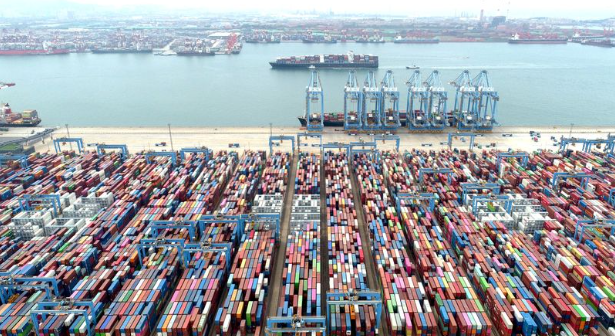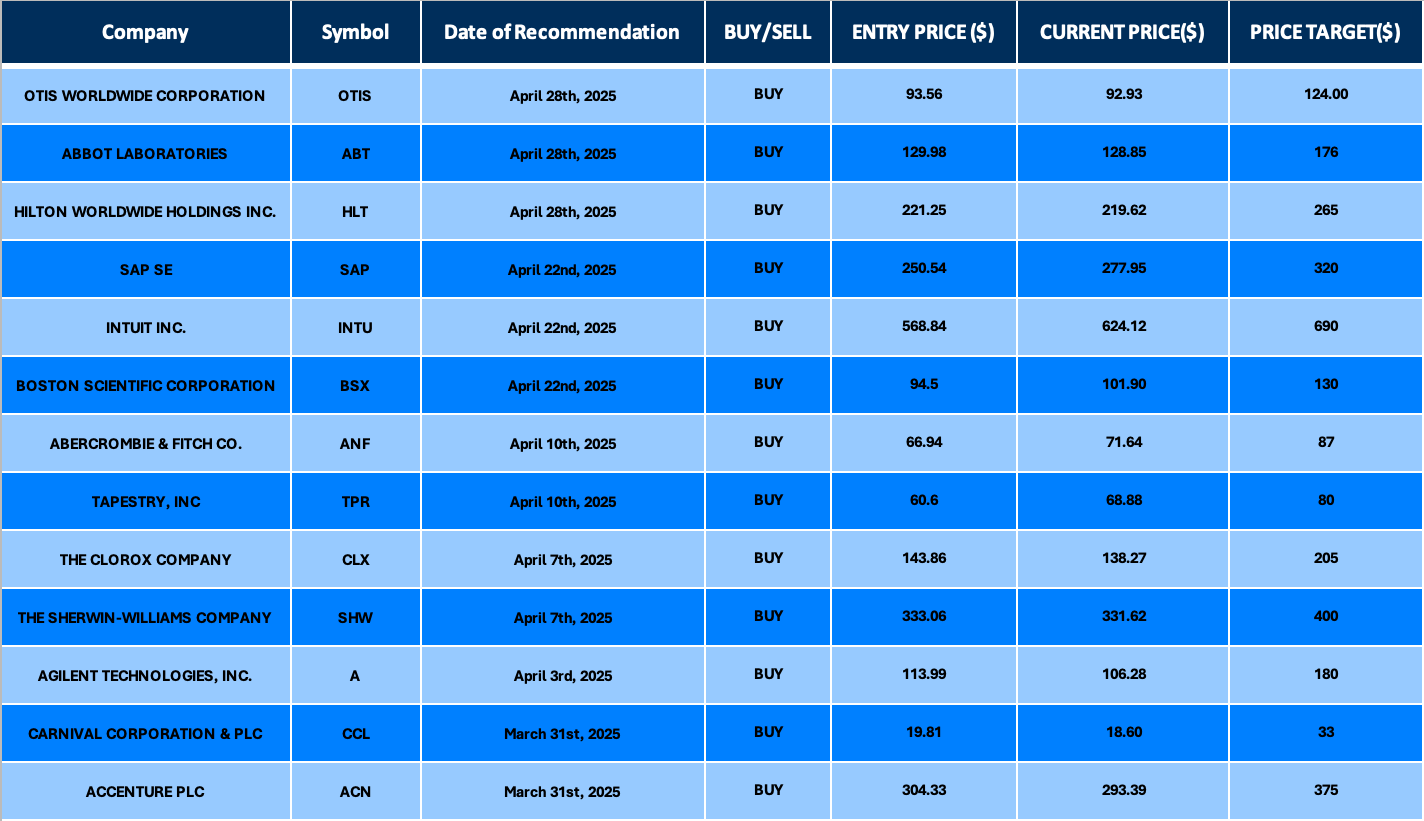
Date Issued – 8th May 2025
Preview
US stock futures rallied on optimism surrounding a potential US-UK trade deal, with the Dow, S&P 500, and Nasdaq futures climbing up to 1%. Meanwhile, the Trump administration’s plan to repeal Biden-era AI chip export restrictions drove semiconductor stocks higher, with Nvidia gaining 3.1%. In China, steel exports are expected to drop by 20% in Q2 due to trade war tariffs, further pressuring domestic oversupply and prices. Utility stocks outperformed the S&P 500 as robust power demand—up 5.5% year-over-year—defies fears of a recession, bolstered by data center expansion and manufacturing growth. Toyota forecast a 21% profit decline for FY2025, citing US tariffs, a strong yen, and rising costs, despite steady hybrid demand. Investors are watching closely for trade developments, infrastructure trends, and sector-specific challenges as volatility persists across global markets.
Futures Rally on US-UK Trade Deal Optimism
US stock futures climbed Thursday morning as investor sentiment surged following President Donald Trump’s announcement of a trade deal with a “major trading partner,” widely believed to be the United Kingdom. Dow Jones Industrial Average futures rose 0.6%, while S&P 500 and Nasdaq 100 futures gained 0.7% and 1%, respectively. Investors are also eyeing upcoming US-China trade talks scheduled for this weekend, though Trump confirmed tariffs on China would remain in place for now. Key economic data, including weekly jobless claims and inflation expectations, will also shape market direction. In earnings news, Warner Bros. Discovery and Peloton are set to report results before the bell.
Investment Insight: Investors should monitor developments in US-UK trade relations, as a finalized deal could boost transatlantic economic activity and support equities, particularly in trade-sensitive sectors like industrials and technology. Additionally, with US-China talks on the horizon, any progress could further alleviate trade uncertainties, providing upward momentum for global markets. Balancing optimism with caution remains critical, as macroeconomic data and geopolitical risks continue to influence short-term volatility.
Trump Administration Overhauls AI Chip Export Rules
The Trump administration is set to repeal the Biden-era AI Diffusion Rule, a sweeping policy that imposed global restrictions on chip exports, including countries outside China. While the move will maintain strict measures against Beijing, it signals a shift toward a more transactional approach, with bilateral agreements likely to guide chip access for nations like the UAE and Saudi Arabia. Semiconductor stocks rallied on the news, with Nvidia climbing 3.1% and the Philadelphia Semiconductor Index gaining 1.7%. The policy overhaul, aiming to simplify regulations, may provide relief to tech companies like Nvidia and Oracle, while creating fresh uncertainty for global AI trade dynamics.
Investment Insight: The rollback of the AI Diffusion Rule could unlock growth opportunities for US semiconductor companies in non-China markets, particularly in regions with high AI investment ambitions, such as the Middle East. Investors should monitor Trump’s forthcoming bilateral chip accords, which may create favorable conditions for firms with exposure to these markets. However, tighter enforcement on diversion hotspots like Malaysia and Thailand highlights the need for caution, as geopolitical risks and shifting trade policies continue to influence the sector’s outlook.
Trade War Pressures China’s Steel Industry Amid Slumping Exports
China’s steel exports are forecast to decline by up to 20% in the second quarter, as the US-China trade war and global protectionist measures slash overseas demand. Key markets like South Korea and Vietnam have imposed duties to block rerouted Chinese steel, while US tariffs have disrupted transshipment trades. Analysts warn this will aggravate domestic oversupply, depressing prices and steelmaker margins, with further repercussions expected in downstream sectors like electric vehicles and appliances. The industry, already grappling with weak property sector demand, faces increasing pressure as second-quarter domestic demand seasonally slows.
Investment Insight: Investors in commodities and steel-related industries should brace for heightened volatility as China’s steel oversupply weighs on global prices. The trade war’s ripple effects, particularly on downstream sectors reliant on steel, could further dampen economic activity in related industries. Diversification into markets less exposed to trade tensions or oversupply risks, such as alternative metals or renewable energy infrastructure, may provide a more resilient investment strategy.
Utility Stocks Shine Amid Surging Power Demand
Utility stocks have outperformed the S&P 500 this year, with the Utilities Select Sector ETF (XLU) up over 6%, compared to a 4% decline in the broader index. Robust power demand—up 5.5% year-over-year—continues to defy recession fears, driven by industrial expansion in manufacturing and data center growth fueled by the AI boom. Utility companies, less exposed to tariff uncertainties, are benefitting from strong investment in US infrastructure. Major players like Duke Energy (+13% YTD) and Southern Company (+12% YTD) are positioned for sustained growth, with Duke projecting record infrastructure development over the next decade.
Investment Insight: Utilities offer a defensive play in uncertain markets, combining stable demand with growth tailwinds from industrial electrification and AI-driven data center expansion. With power-intensive sectors like semiconductors and advanced manufacturing bolstering demand, utility stocks remain attractive for income-focused investors seeking resilience amid broader market volatility.

Toyota Profit Forecast Falls Amid Tariffs and Strong Yen
Toyota Motor, the world’s largest carmaker, projected a 21% drop in operating profit for the fiscal year ending March 2026, forecasting ¥3.8 trillion ($26 billion) compared to ¥4.8 trillion last year. The decline reflects pressure from US tariffs, a stronger yen, and elevated material costs. While hybrid vehicle demand remains robust, tariffs risk dampening US-bound exports and consumer sentiment. Toyota also faces challenges in China, where competition from local automakers continues to weigh on sales. The automaker may be forced to expand US production, potentially raising labor costs and capital expenditure.
Investment Insight: Tariff pressures and currency volatility highlight the risks for global automakers heavily dependent on exports. Investors should monitor Toyota’s ability to navigate rising costs and leverage its hybrid leadership to offset sluggish margins. Diversification into EVs and regional production hubs could provide long-term stability, but near-term headwinds warrant caution in the auto sector, particularly for companies with significant exposure to US and Chinese markets.
Market price: Toyota Motor Corp (TYO: 7203): JPY 2,672
Conclusion
Markets are navigating a mix of optimism and uncertainty as trade developments, sector-specific challenges, and macroeconomic shifts take center stage. US-UK trade deal expectations and robust power demand have buoyed equities like utilities and semiconductors, while tariffs and currency pressures weigh on automakers like Toyota and global steel markets. Investors should remain vigilant, balancing opportunities in resilient sectors such as AI-driven infrastructure and utilities with caution toward trade-sensitive industries. As geopolitical and economic trends evolve, strategic diversification and close monitoring of policy shifts will be key to navigating the complex global investment landscape.
Upcoming Dates to Watch
- May 8th, 2025: US Nonfarm productivity
- May 9th, 2025: China; PPI, CPI, Trade Balance
Find below some of our Buy/Sell Recommendations. Balfour Capital Group is a distinguished global boutique investment management firm with $350 million AUM and over 1000 Clients.

Disclaimer: This post provides financial insights for informational purposes only. It does not constitute financial advice or recommendations for investment decisions.




